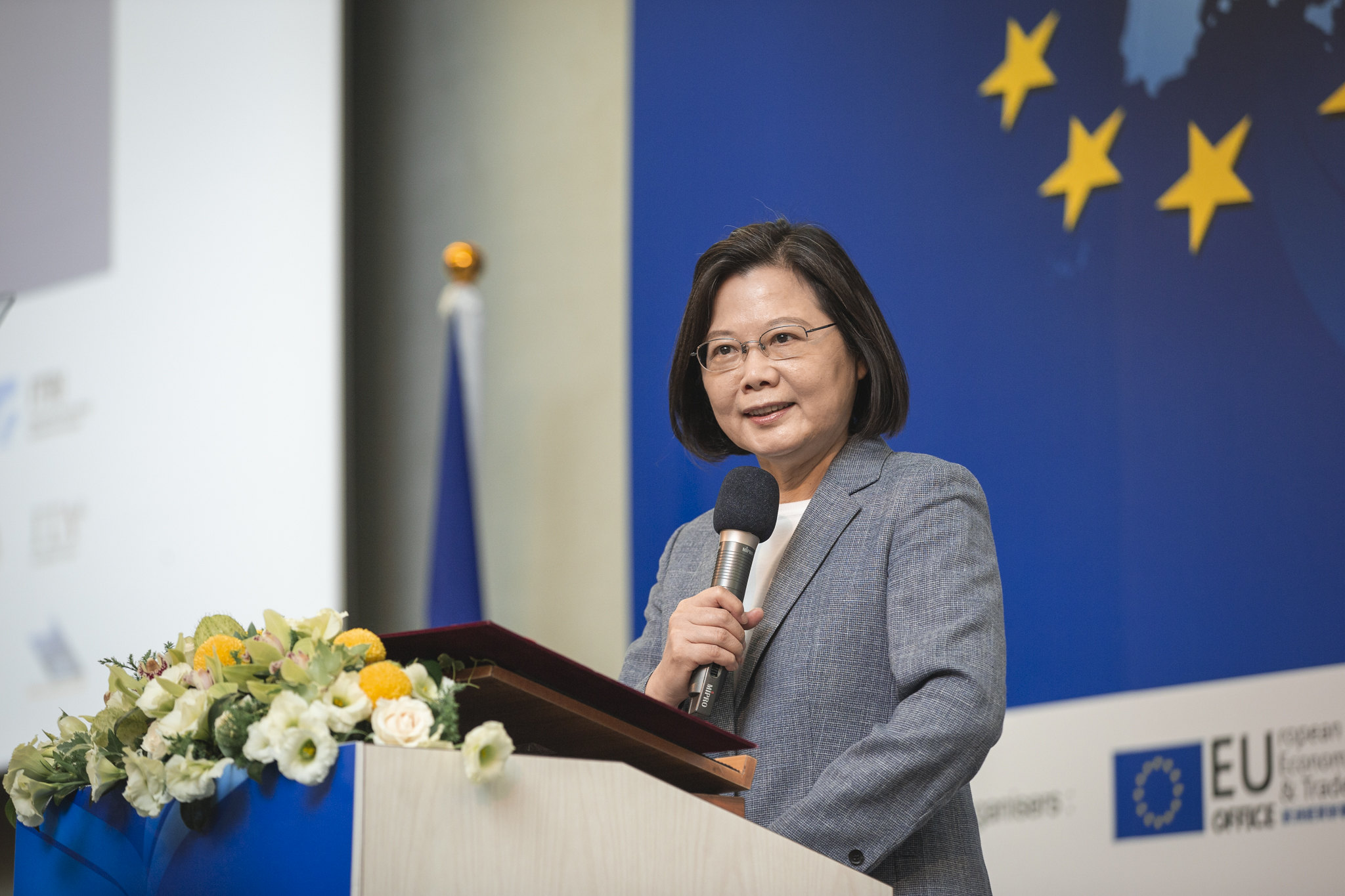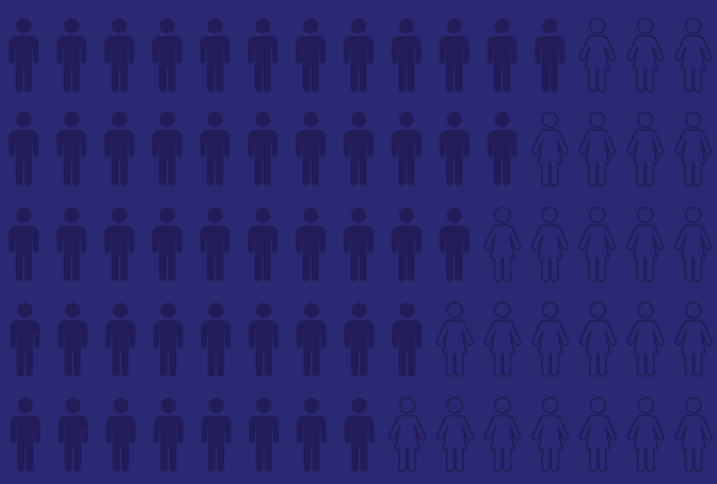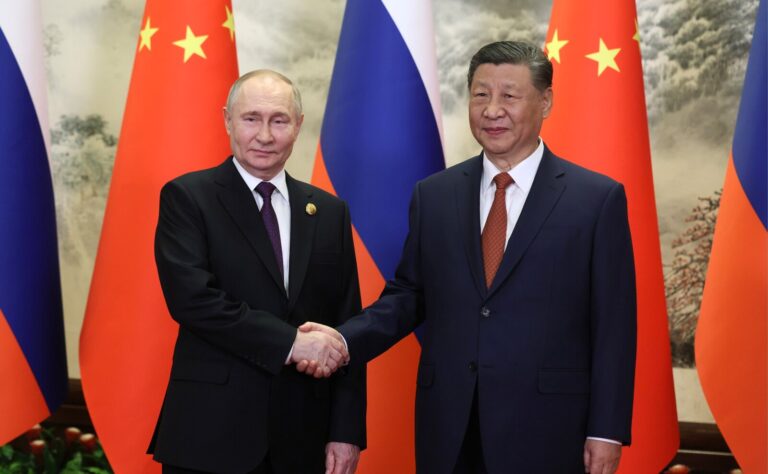
With the One-China Policy framed by Beijing as non-negotiable, European policymakers have remained cautious about their approach to Taiwan for decades. However, with Taiwan’s effective response to COVID-19 and little progress in Beijing-Brussels relations, the EU might yet give the self-ruled island more attention.
A ‘Yes’ to Beijing Equals a ‘No’ to Taipei
One-China Policy – a principle that Beijing is the sole legitimate government representing China – laid the foundation for the establishment of diplomatic relations between the People’s Republic of China, the European Community, and the United States in 1975 and 1979 respectively. Diplomatic recognition of Taiwan has henceforth remained an issue of the highest sensitivity in Beijing’s political agenda.
Since Tsai Ing-wen’s victory in presidential elections in 2016, Beijing has proven to be effective in the restarted effort to poach Taiwan’s last diplomatic partners. Within just four years Taipei lost seven diplomatic allies, with Kiribati and the Solomon Islands cutting ties with Taiwan within one week in 2019. The ultimate goal of the isolation campaign promoted by Beijing is “reunification” between the mainland and the island.
Currently only 15 states still recognize Taiwan as a sovereign nation, with the Holy See being the last European government diplomatically allied with Taipei (though that might change soon as well). The EU, following the One-China Policy, does not hold any formal political ties with Taiwan. However, the bonds on an unofficial level are flourishing in many areas. As many as 17 representative offices of the EU and its member states operate in Taipei, with the European Economic and Trade Office (EETO) in Taiwan serving as an official hub for the EU’s representation.
Taiwan’s COVID-19 Diplomacy in Europe
“Due to effective response to the COVID-19 pandemic, Taiwan has carved out a reputation in Europe as a well-governed place that can bring a lot to the international community and global cooperation, both in terms of health protection and economic partnership,” assessed Filip Grzegorzewski, EU representative to Taiwan and head of the EETO.
Alongside Taiwan’s successful handling of the outbreak, and in part as a response to Beijing’s ‘mask diplomacy’ offensive, Tsai’s administration launched the ‘Taiwan can help’ campaign. Yet, medical initiatives have been stressed as being ultimately broader and more longstanding, such as by Chen Kuan-Ting, CEO of the Taiwan NextGen Foundation.
“Taiwan’s efforts in building a more sustainable global health system go beyond donating masks,” he said. “The history of Taiwan’s public health diplomacy shows that Taipei helped African countries in fighting malaria, sent doctors to Oceania and organized medical delegations to numerous countries. All these were aimed at building a better public health environment worldwide long before the COVID-19 pandemic.”
Despite the lack of diplomatic ties with Taiwan, European countries received medical supplies both from Beijing and Taipei for the fight with the COVID-19 outbreak. In April the official EU channels launched videos with cargo planes full of medical supplies with ‘Taiwan can help’ signs landing at the Luxembourg Airport. Since then, Taiwan has continued providing aid on a global scale, while garnering gratitude from the international actors. Ursula von der Leyen, president of the European Commission, thanked Taiwan for donations and assured that “we are #StrongerTogether.” Her tweet exacerbated tensions between Brussels and Beijing after Joseph Borell, the EU’s chief diplomat, accused Beijing of promoting a “politics of generosity” a few days earlier.
Taiwan ‘Goes Europe’
“Despite the uncertainty in the current global market, Taiwan has remained proactive in expanding international cooperation. Where others see volatility, we see opportunities for prosperity and building global partnerships,” said President Tsai in her opening remarks at the first EU Investment Forum, held on September 22 in Taipei.
Along with ‘Go Europe’ – the Forum’s watchword – Tsai seized the occasion to call for negotiating a bilateral investment agreement (BIA) between Taiwan and the EU. As reflected in the EU’s 2015 ‘Trade for All’ strategy, Brussels is interested in enhancing investment cooperation with Taiwan. However, it remains unclear when the negotiations on the BIA would be launched.
The COVID-19 pandemic uncovered Europe’s heavy dependence on China in terms of masks and other medical supplies. In parallel with Brussel’s increasing wariness of existing dependencies on only one market, Taipei took the opportunity and declared its readiness to boost cooperation with like-minded European partners in high-end vaccine R&D and production, as well as pandemic prevention supplies.
However, according to Grzegorzewski, “Taiwan has the potential to become an important partner for the EU on economic issues that go beyond medical supplies, including semiconductors, ICT sector, mobility and biotech.” All of these fields match well with the EU Recovery Plan and are most promising for Taiwanese investments in the EU.
Yet, it takes two to tango. The necessity of fulfilling the ‘Go Europe’ theme is demonstrated by numbers – as indicated in the EETO’s report, in 2019 European investments accounted for over 25% of all FDI in the island. Conversely, Taiwanese investments in the EU represented only 1.7% of its global FDI stocks.
“The Forum served as a wake-up call for Taiwan to see the strategic dimension of investing in Europe. The EU is the largest foreign investor in Taiwan. On top of that, Europeans invest in strategic sectors, such as off-shore wind energy, and support Taiwan in building its energy independence,” highlights Grzegorzewski. “However, perhaps due to geographical distance and little incentives from the Taiwanese authorities, Taiwan’s investments in the EU remain at a very low level. When it comes to negotiating a BIA, the more Taiwanese investments in Europe, the easier it will be for both sides to come to an agreement.”
EU-China Relations: a Redefinition
The COVID-19 pandemic served as shock therapy for Brussels in assessing its relationship with Beijing. In a joint communication issued by the European Commission in June, Brussels accused Beijing and Moscow of conducting disinformation campaigns around COVID-19. Hence, as reflected in the MERICS report, due to a rich experience of handling influence activities from Beijing, Taiwan could gain more visibility in the EU’s agenda.
In her State of the Union address on September 16, von der Leyen called out China multiple times. Her criticism of human rights abuses in Hong Kong and Xinjiang once again sparked a discussion to create the European ‘Magnitsky Act’ that could be used to sanction Beijing. Since the European Commission labeled China a negotiating partner, an economic competitor and a systemic rival in 2019, Brussels has been signaling that its relationship with Beijing is – using von der Leyen’s words – “simultaneously one of the most strategically important and one of the most challenging” it has.
When Miloš Vystrčil, President of the Czech Senate, brought a 90-member delegation to Taiwan at the end of August, the EU responded strongly to Beijing’s threats. After Wang Yi, China’s foreign minister, warned that Czechs would pay a “heavy price” for the visit, Germany, France and Slovakia stood up to Beijing’s reprimand and called for enhancing inter-European solidarity.
Recent dynamics also reminded Beijing how complex and incoherent Central and Eastern Europe is. In August, within just one week, representatives of the Czech Republic and Hungary, two out of 17 countries involved in cooperation with China under the 17+1 Format, visited the mainland and Taiwan.
Péter Szijjártó – Hungarian Minister of Foreign Affairs and Trade and the first EU member state foreign minister to visit China since the outbreak – declared that “any interference in China’s internal affairs would be condemned by the Hungarian government.” This implicit reference to Taiwan, which Beijing treats as a part of its domestic politics, stood in great contrast with Vystrčil’s statement that “every country has the right to interpret the One-China Principle in their own way.” These developments portray diverse political attitudes in the region that Beijing might have underestimated when launching the 17+1 Format platform in 2012.
Currently there is no intention in the EU to abandon the One-China Policy. However, as the EU-China Video Conference has revealed, there is no substantial progress in bilateral relations either. Negotiations on a comprehensive bilateral investment agreement that have been dragging on since 2014 are a case in point. Yet, the COVID-19 pandemic has redirected Brussels’ attention to advancing its strategic autonomy and resilience.
Consequently, the EU recognized Taiwan’s potential to become a unique player in the complex process of reshaping the global supply chains. As such, Grzegorzewski concludes that the EU is open to a strengthened partnership with Taiwan.
“The EU remains open to Taiwanese investors and broader cooperation with Taiwan,” he said. “However, it is Taiwan’s choice whether they will take advantage of this opportunity.”
Written by
Paulina Uznańska
PUznanskaPaulina Uznańska is an Analyst in the China Team at the Center for Eastern Studies (OSW), Poland, working on modern technologies and EU-China relations.

